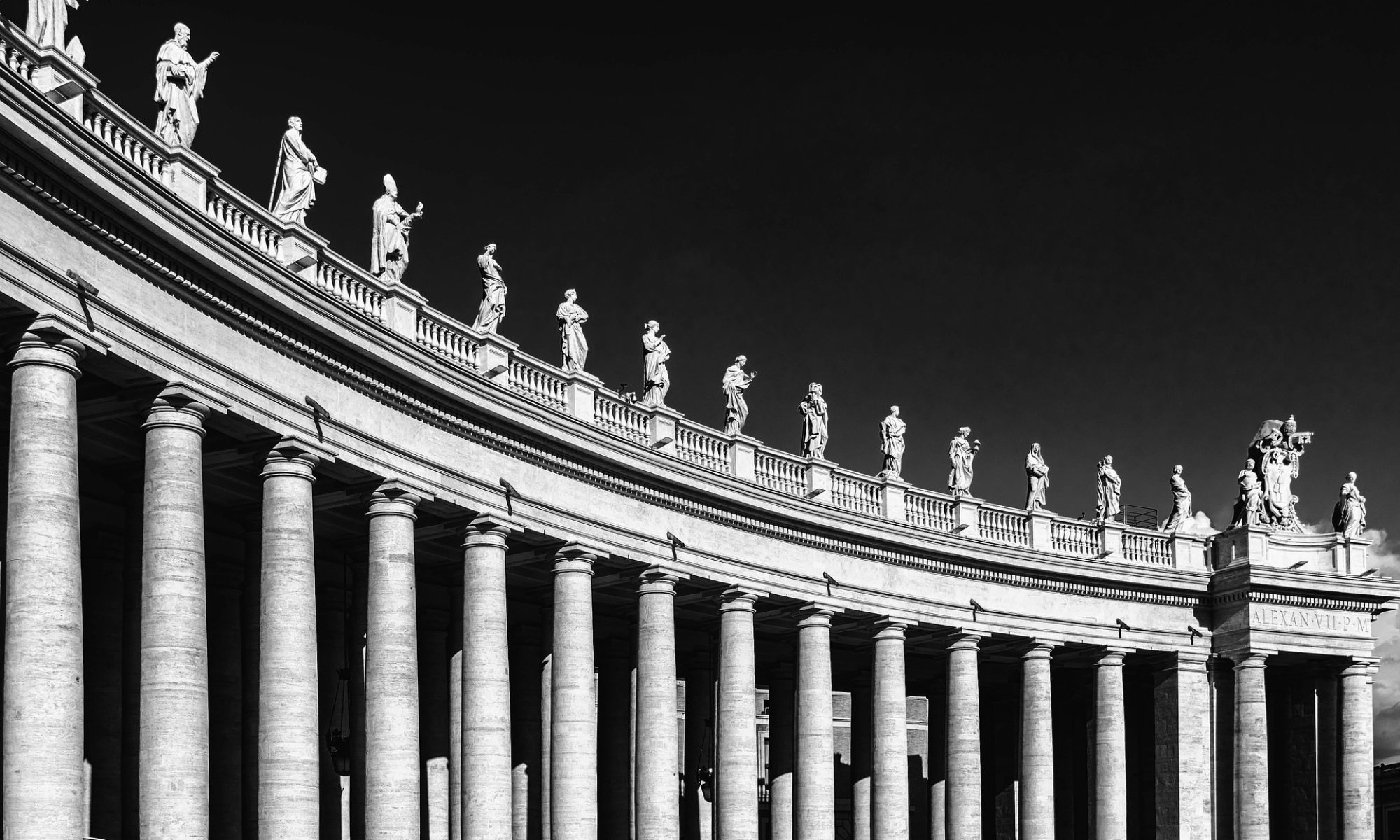
Images can turn the world and large portions of its population upside down. In 2005 a satirical vignette which pictured the prophet Mohammed having a bomb on his head instead of a turban caused outrage in the Muslim world. Millions of Muslims felt offended and thousands of them responded with street demonstrations around the globe. Protests went as far as bombing Danish embassies and pronouncing a fatwa against the cartoonist. An international controversy was aroused over free-speech rights, self-censorship and the respect of religious sensitivities. In the West the general orientation of public opinion perceived the Muslim reaction as grossly overstated and hitting one of the indispensable capstones of Western civilization. However it became clear that the final word could not be said on the issue. The power of images challenges a simple black and white approach. A new case will cause many to further reflect on it.
A Papal kiss to fight hatred?
On November 16th, a huge banner was displayed on Castel Sant’Angelo’s bridge in Rome, right in front of Vatican City. The picture is very impacting and somewhat shocking. In it Pope Ratzinger is kissing an imam who happens to be Ahmed al-Tayyeb, imam of the mosque Al Ahzar in Cairo. The picture is part of an advertisement campaign by Italian photographer Oliviero Toscani on behalf of the fashion industry United Colors of Benetton, whose aim is to fight against the culture of hatred by promoting friendship amongst peoples, cultures and faiths. The campaign will also feature passionate kisses between President Obama and the Chinese President Hu Jintao, between Chancellor Angela Merkel and the French President Sarkozy, and between Israeli Prime minister Netanyahu and Palestinian leader Abu Mazen. But the religious kiss between the Pope and al-Tayyeb was meant to be the first and perhaps most shocking one of the series.
The Vatican has immediately expressed its indignation for violating the image of the pope, desecrating his dignity, and offending the religious sensitivity of millions of Roman Catholics around the world. The banner was immediately removed but copies of the picture went out around the world, soon becoming one the most clicked on photos of the day. The following day the Vatican announced that Benetton will be sued both nationally and internationally.
Freedom in the era of Photoshop
Controversies over the limits of freedom of expression will undoubtedly rise again. The Vatican has not only appealed against the attack on the individual image of the Pope, but also to the alleged and public scorn and disgust caused to the faithful who recognize the Pope as their leader. While the former criterion is more neatly identifiable, the latter is more difficult to define. It is certainly contrary to the Pope’s dignity to manipulate a picture in which he, a confessed celibate, is pictured as kissing another man, thus indicating a homosexual relationship. If he had agreed to its use, this would have given United Colors of Benetton the right to exploit it. Since this is not the case, it is clearly not right to grossly caricature a man for publicity and business purposes without consent. Moreover, since the picture is counterfeit in sensitive and significant ways, permission is even more necessary, so to speak.
The other argument by the Vatican appears to be weaker and potentially dangerous. In any given matter/situation (i.e. sports, religion, politics) one can always find someone who gets offended by the language used, opinions expressed, or the media employed. Is “offensiveness” a proper legal category that entitles someone to sue someone else? Homosexuals can be “offended” by the Evangelical preacher who publicly reads Romans 1. Secularists can be “offended” by someone speaking of “the creation of the world”. Evangelicals can be “offended” by the Pope referring to them as a cult. The list goes on and on. The legal protection of one’s own dignity is one thing, respecting the “feelings” and “emotions” of different people is another. The former can potentially become a legal case, the latter is better addressed in terms of appropriateness (or lack of it).
The world of Photoshop is a brave new world. Christian ethics must pave a way forward in these difficult, yet unavoidable issues.
Leonardo De Chirico
leonardo.dechirico@ifeditalia.org
Rome, 19th November 2011

